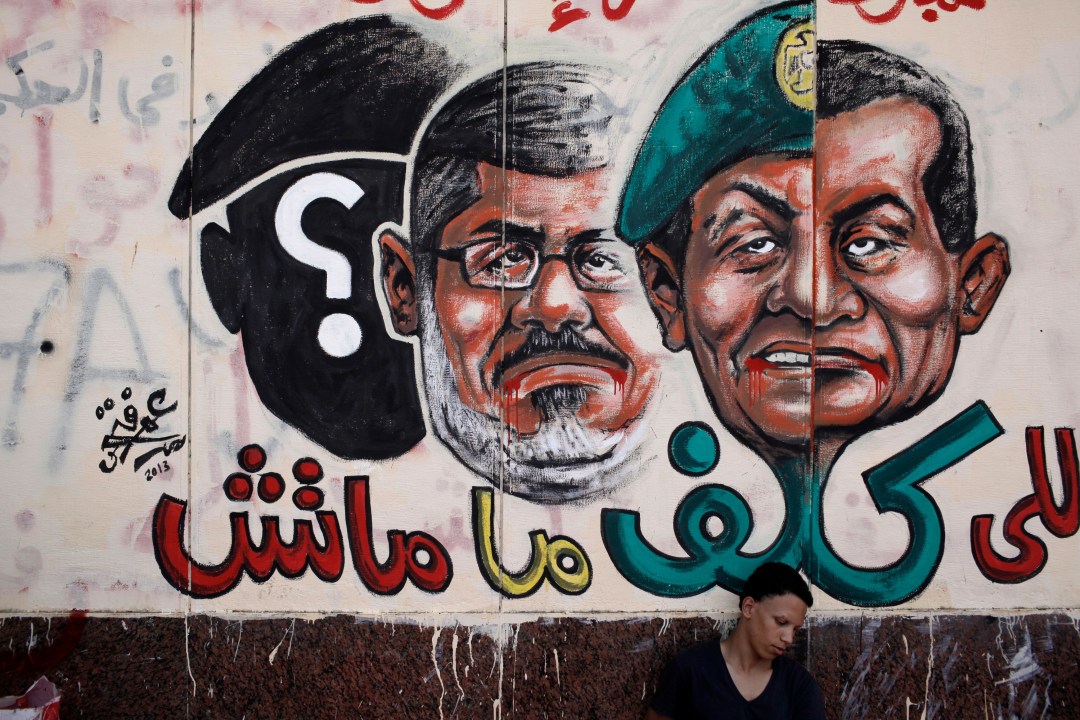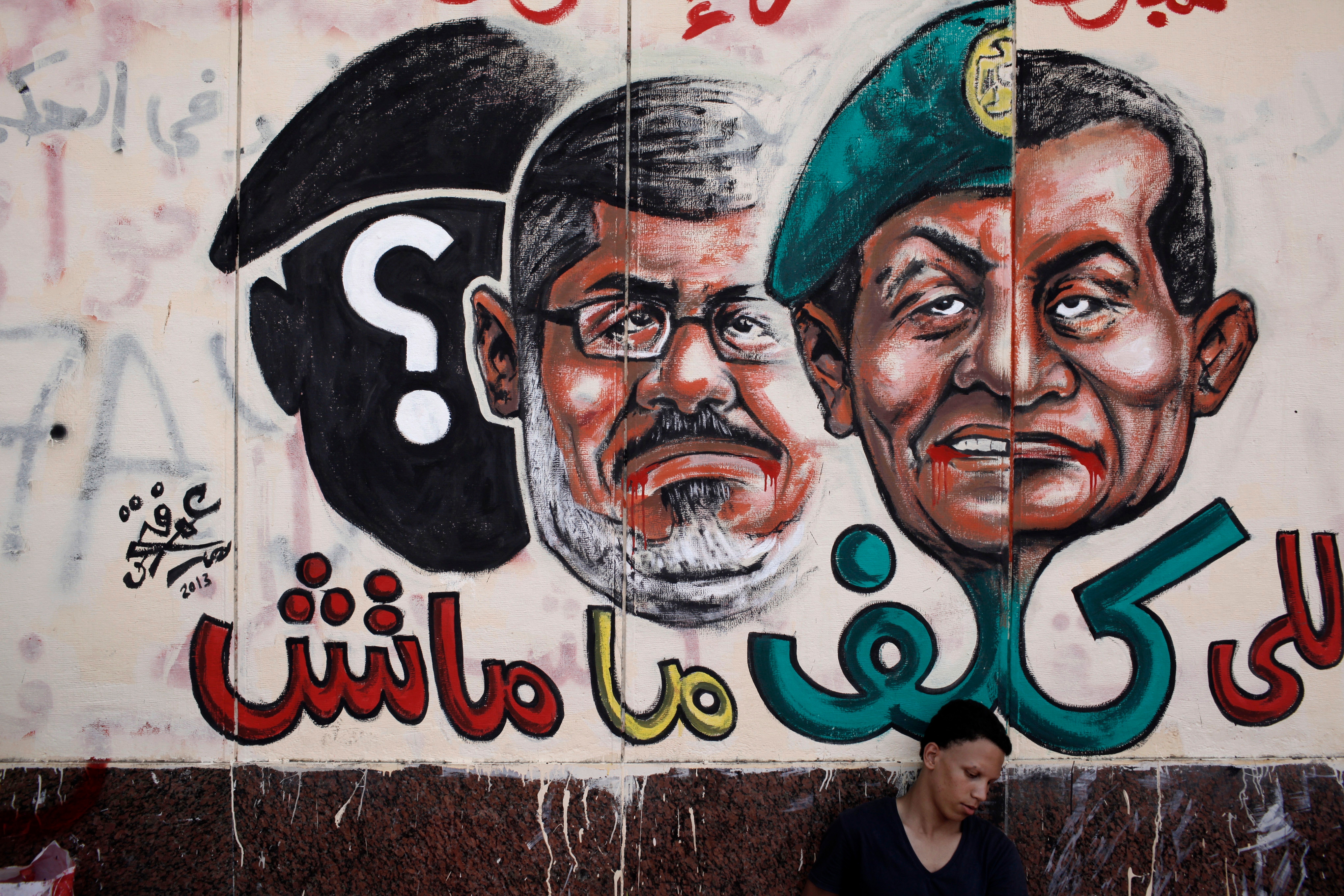Democracy and holding elections are not the same thing. There could be no better demonstration of this than the experience of Egypt. Protesters who two years ago gathered in Cairo to force a dictator out of office, and to win the right to replace him with an elected governmentS, are back — this time to demand the resignation of the president whom they elected.
The likely result is, by popular demand, a return to what preceded the Arab spring of 2011: a military dictatorship, for a period at least. From a western perspective this is inexplicable: why would people want to risk their lives to overthrow a military-backed president, only to come back two years later to reverse what they seemed to have achieved? But then the West sees the events in Egypt through the prism of societies where democracy has evolved over a much longer period — centuries, in the case of Britain and the US. The experience of young democracies is that they often do have sharp reversals. Hold an election in a country which lacks the traditions and institutions of an established democracy and the question can all too easily be: which dictator would you like next? As in Egypt, as in Russia: there are plenty who wonder what the revolution was all about.
The West needs to learn from Egypt because for the past two decades the US and its allies have been too keen to believe that a country is free when it holds elections. When we have intervened, as in Afghanistan and Iraq, we have tended to treat the first elections as a pivotal moment following which, excepting a few hiccups, the country will necessarily embark on an enlightened path to peace, stability and respect for human rights. When the elections are followed by further chaos we have tended to tell ourselves (like Donald Rumsfeld dismissing the murderous aftermath of Saddam Hussein’s overthrow with the words ‘freedom’s untidy’) that it is just a bit of exuberance from a people who have been oppressed for decades.
The lesson of Iraq, Afghanistan and now Egypt is that democracy only works when a freely elected parliament is supported by the other institutions which guarantee freedom in the West: fair and independent courts, a police force reasonably free of corruption, a free press, an army which does not seek to intervene in political debate. It is a paradox that while the West has encouraged elections in every Middle Eastern country in which it has found itself involved, many of our friends in the region have been countries like Jordan and Saudi Arabia whose leaders do not themselves bother seeking a mandate from their people. They are countries whose attitude to human rights leaves plenty to be desired, yet it is easier to do business with them than with a volatile democracy.
David Cameron acted boldly over Libya, and his instincts in that case were vindicated by events. But this should not give him a taste for interfering in Arab politics. It is tempting to take sides when a country seems to have a chance to overthrow a theocracy or military dictatorship; to think that with a nod and a wink, a missile and a tank, we can groom a favoured leader whom the people might be inclined to rubber-stamp at the polls. But such efforts usually backfire, and anyway, in Cairo today, America’s opinion counts for little. What Britain thinks matters even less.
The Arab Spring was welcomed by those who believed that any regime change had to be for the better — because history was on a course towards liberal democracy. As Egyptians have found, things are not quite so straightforward: the ballot boxes brought new waves of sectarian bloodshed and new shortages of food, fuel and security. Britain can hope that Egypt will evolve into a stable democracy. But we will not speed up that process by trying to bully or cajole it in a particular direction. This time we would do better to admit that we do not have the answers.
A prize for seeing clearly
To see what is in front of one’s nose, George Orwell said, needs a constant struggle. This is especially true when it comes to the environment. An energetic green lobby conjures up all manner of illusions to divert our attention from self-evident truths. Shale gas now stands as an obvious potential solution to our energy needs: the British Geological Survey last week found 1,300 trillion cubic feet of it in Lancashire. That site by itself could transform the fortunes of British industry. And yet in Westminster, the debate over the Energy Bill proceeds as if fracking did not exist and wind farms were a sensible way to generate power on a national scale.
On such important issues, we need more truth, less distraction. With that in mind, this year’s Spectator Ridley prize will offer £5,000 to the essay which best gores a sacred cow of the environmental movement. The prize money comes from a subsidy which the author and scientist Matt Ridley receives from a windfarm development on his family’s land. He loathes the development, and wants the money put to a good cause. The winning essay need not take aim at wind farms, but should expose any pseudoscience and groupthink which lets bad ideas influence government policy with a minimum of intellectual opposition. You can find further details of the second annual Ridley prize at: new.spectator.co.uk/ridleyprize.







Comments